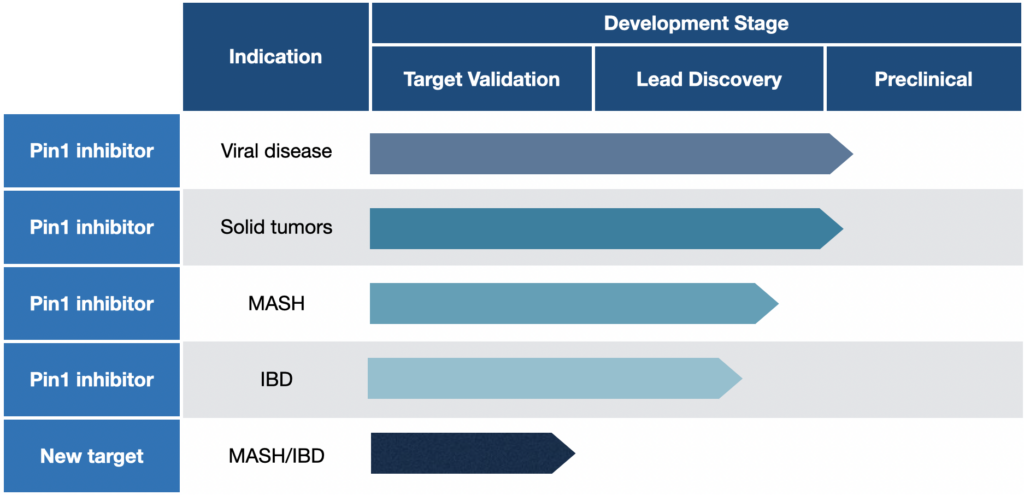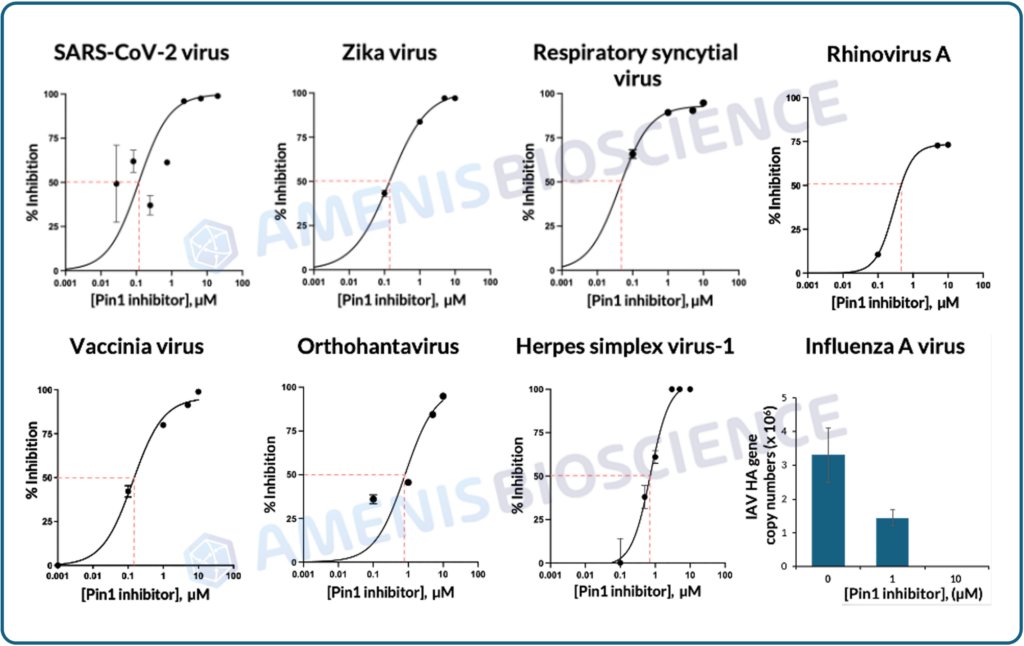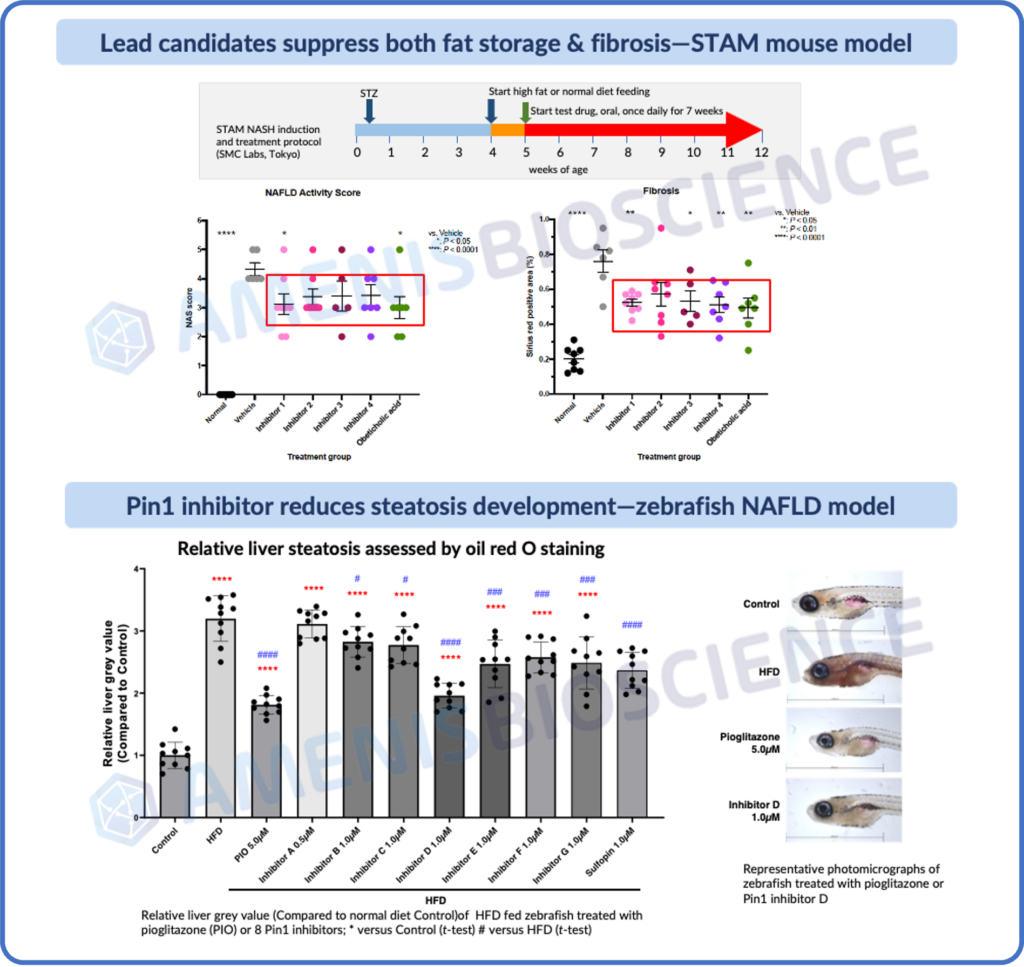Research

 Pipeline 1
Pipeline 1
Viral Infection
Pin1 enhances the efficiency of viral infection by promoting uncoating and integration of the human immunodeficiency virus. (Front. Cell Dev. Biol. 2022 10:1005325)
Our Mission
: We are committed to developing Pin1 inhibitors for viral diseases by targeting a key human enzyme essential for viral propagation. This approach ensures broad activity and reduces the likelihood of losing effectiveness due to viral mutations.
Our Research
: We are developing a broad-spectrum antiviral drug that has demonstrated efficacy against more than 17 different types of viruses. By targeting a host protein crucial for viral propagation, this drug provides wide protection against diverse viruses while minimizing the risk of viral resistance.

 Pipeline 2
Pipeline 2
MASH
Pin1 plays essential roles in MASH development by modulating multiple target proteins. Pin1 plays critical roles in favoring the exacerbation of both lipid accumulation and fibrotic change accompanying inflammation. Indeed, Pin1-deficient mice are highly resistant to MASH development by either a high-fat diet or methionine-choline-deficient diet feeding. (Cells. 2019 29;8(12):1545)
Our Mission
: We are developing Pin1 inhibitors as a groundbreaking treatment for MASH, targeting all key components of its pathogenesis —steatosis, hepatitis, and fibrosis— to provide a more effective therapeutic solution.
Our Research
: In animal models of fatty liver disease, Amenis’s Pin1 inhibitor has demonstrated significant improvements in key pathologies, including steatosis, hepatitis, and fibrosis. These findings highlight its potential as a more effective treatment that addresses all aspects of MASH pathogenesis.
